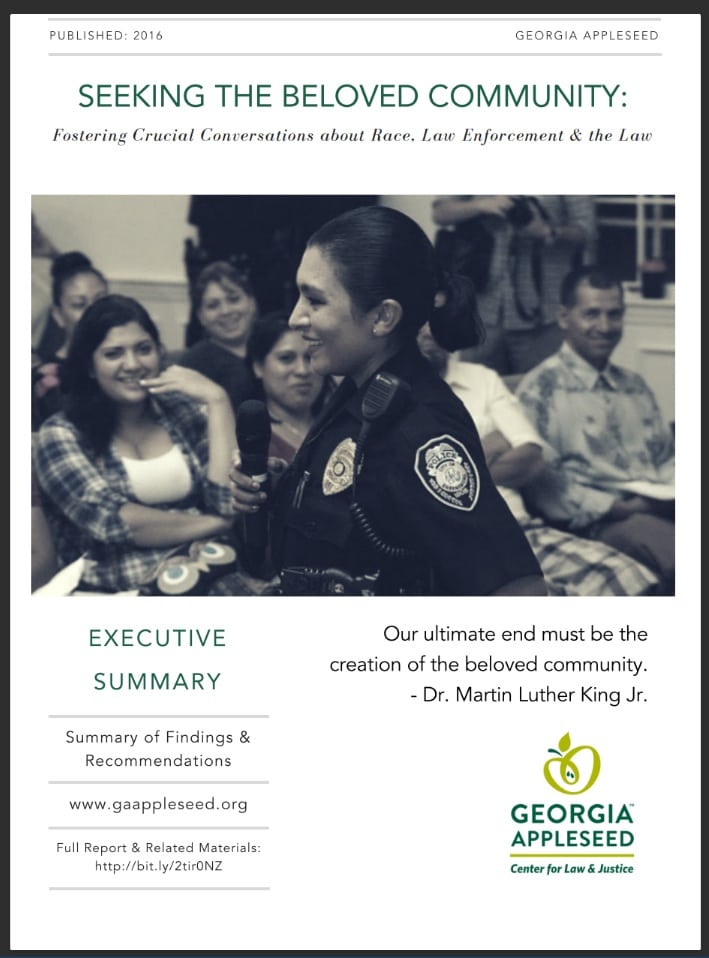Race, Law Enforcement, and the Law
In the Spring of 2015, the Georgia Appleseed began a process designed to seek the views of community members throughout Georgia – law enforcement personnel; prosecutors, defense lawyers, neighborhood associations, faith leaders, political leaders, nonprofits and others – to help in assessing the nature of police-community relations in our state and to seek recommendations for changes to law as well as policies and practices that could improve or enhance them.
Georgia Appleseed brought to this effort a firm commitment to objective, data driven assessment, a deep respect for the extraordinarily difficult, important and oftentimes dangerous service that law enforcement personnel provide to our society and an abiding belief that all of Georgia’s citizens must be afforded the rights to which they are entitled under the federal and state constitutions.
Preliminary research identified critical issues to be addressed based upon recommendations made by law enforcement community relations experts from around the country. These issues encompassed two broad areas of concern. First, what changes to law or policy would most likely improve law enforcement community relations in ways that would significantly reduce the likelihood of future encounters resulting in death or severe bodily harm to community members? Second, what law or policy reforms may be necessary to assure that investigations and criminal charging decisions triggered by any such future incidents are fair and also are perceived to be fair by the community?
Detailed legal and factual research was undertaken to understand the current state of law, policy and practice in Georgia in the identified critical issue areas. Approximately 140 individual stakeholder interviews were carried out to obtain the views of a broadly diverse group of Georgians on these critical issues. A stakeholder forum was held to foster further crucial conversations on these topics.
The research efforts and stakeholder input were compiled in a comprehensive report published in 2016.

